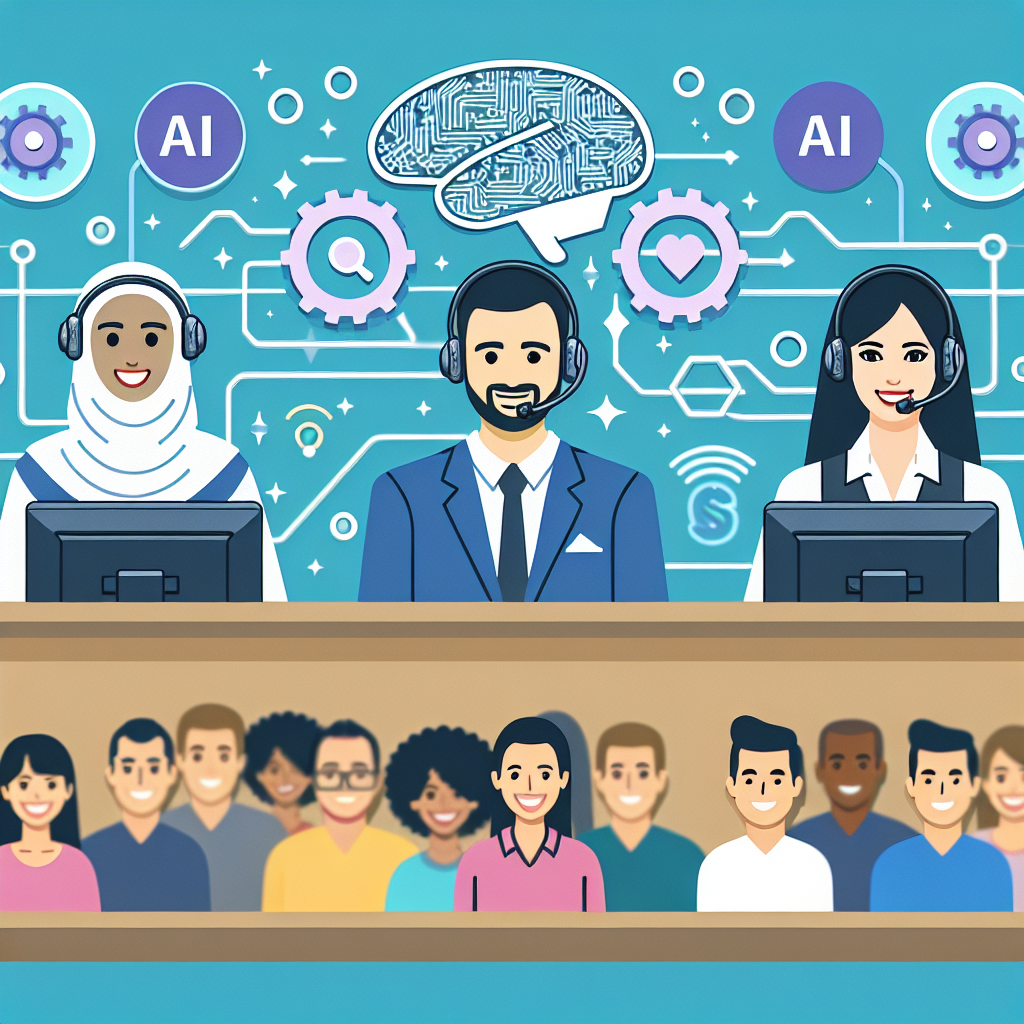Artificial Intelligence (AI) has been revolutionizing various industries, including customer service. With the advancements in AI technology, businesses are now able to provide faster, more personalized, and efficient customer service experiences. This has led to significant improvements in customer satisfaction and loyalty. In this article, we will explore the impact of AI on customer service and what businesses need to know to leverage this technology effectively.
AI in Customer Service
AI has transformed the way businesses interact with their customers. By leveraging AI-powered tools such as chatbots, virtual assistants, and predictive analytics, businesses can provide 24/7 support to their customers and resolve their issues in real-time. AI can analyze customer data, predict their needs, and provide personalized recommendations, creating a more seamless and efficient customer experience.
One of the most common applications of AI in customer service is chatbots. These AI-powered bots can handle routine customer queries, provide product recommendations, and guide customers through the purchasing process. By automating these repetitive tasks, businesses can free up their human agents to focus on more complex issues that require human intervention.
AI-powered virtual assistants, such as Amazon’s Alexa and Apple’s Siri, are also becoming increasingly popular in customer service. These assistants can help customers with their inquiries, schedule appointments, and provide personalized recommendations based on the customer’s preferences. By integrating virtual assistants into their customer service channels, businesses can provide a more interactive and engaging experience for their customers.
Another key application of AI in customer service is predictive analytics. By analyzing customer data, AI can predict customer behavior, preferences, and trends, allowing businesses to anticipate their needs and provide proactive support. For example, AI can analyze a customer’s purchase history and browsing behavior to recommend products that are likely to interest them, increasing the chances of a successful sale.
The Impact of AI on Customer Service
The impact of AI on customer service has been profound. Businesses that have adopted AI-powered customer service tools have seen significant improvements in various key metrics, including customer satisfaction, retention, and loyalty. By providing faster, more personalized, and efficient customer service experiences, businesses can differentiate themselves from their competitors and build stronger relationships with their customers.
One of the key benefits of AI in customer service is its ability to provide 24/7 support to customers. Unlike human agents, AI-powered tools such as chatbots and virtual assistants can handle customer inquiries at any time of the day or night, ensuring that customers receive prompt and efficient support whenever they need it. This round-the-clock availability can help businesses improve their customer satisfaction levels and build trust with their customers.
AI can also help businesses provide more personalized customer service experiences. By analyzing customer data, AI can understand the individual preferences, behavior, and needs of each customer, allowing businesses to tailor their interactions accordingly. For example, AI can recommend products based on a customer’s purchase history or provide personalized discounts and promotions, creating a more engaging and relevant experience for the customer.
Another key impact of AI on customer service is its ability to improve efficiency and productivity. By automating routine tasks such as answering customer queries and processing orders, AI can free up human agents to focus on more complex issues that require human intervention. This can help businesses reduce their operational costs, improve their response times, and handle a larger volume of customer inquiries more effectively.
FAQs
Q: How can businesses leverage AI in customer service effectively?
A: To leverage AI in customer service effectively, businesses should first identify their customer service objectives and challenges. They should then evaluate the AI-powered tools available in the market and choose the ones that best align with their goals. Businesses should also ensure that their AI tools are integrated seamlessly into their existing customer service channels and processes to provide a consistent and seamless experience for their customers.
Q: What are the potential drawbacks of using AI in customer service?
A: While AI can provide numerous benefits for businesses, there are some potential drawbacks to consider. For example, AI-powered tools may lack the human touch and empathy that human agents can provide, leading to a less personalized experience for customers. Additionally, there may be concerns around data privacy and security when using AI to analyze customer data. Businesses should carefully consider these factors and ensure that they address any potential risks when implementing AI in customer service.
Q: How can businesses measure the impact of AI on customer service?
A: To measure the impact of AI on customer service, businesses can track key metrics such as customer satisfaction scores, response times, resolution rates, and customer retention rates. They can also conduct customer surveys and feedback sessions to gather insights on how AI-powered tools are perceived by their customers. By monitoring these metrics and gathering feedback, businesses can assess the effectiveness of their AI customer service initiatives and make any necessary adjustments to improve their performance.
In conclusion, AI has had a significant impact on customer service, enabling businesses to provide faster, more personalized, and efficient support to their customers. By leveraging AI-powered tools such as chatbots, virtual assistants, and predictive analytics, businesses can improve their customer satisfaction levels, build trust with their customers, and differentiate themselves from their competitors. To harness the full potential of AI in customer service, businesses should carefully evaluate their objectives, choose the right AI tools, and ensure seamless integration into their existing customer service channels. By doing so, businesses can enhance their customer service experiences and drive long-term success.

